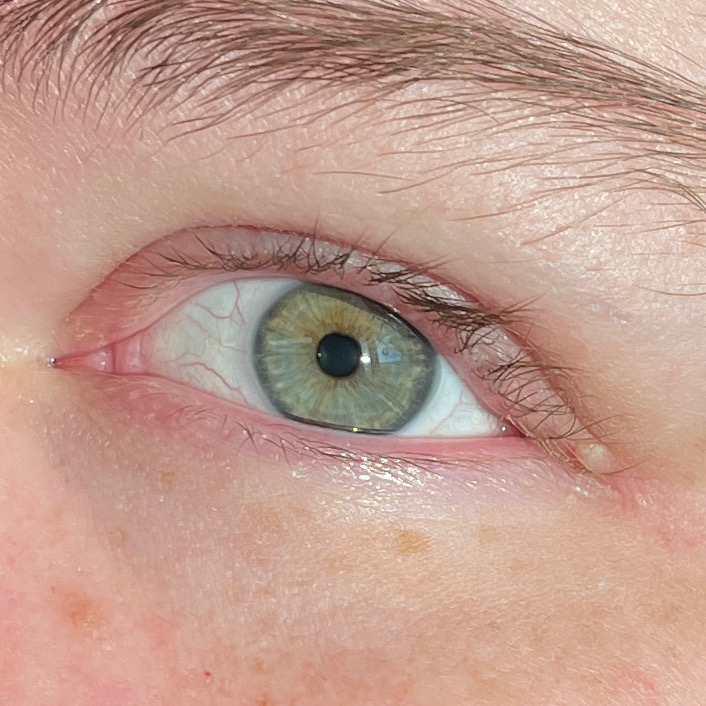|
|
2020 is a futuristic-ass looking year, isn’t it? Will I ever get used to it? Will I ever stop accidentally typing 2002 instead? Who knows!

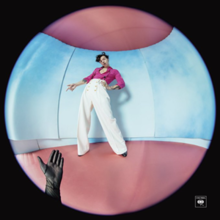 Harry Styles’ Fine Line is so lovely and so artful and delicate and poppy and fun and emotive and I was so looking forward to it and so glad to not only not be disappointed, but to be deeply impressed and MOVED. I’m particularly fond of “Adore You” and “Cherry” and “To Be So Lonely” and “She,” and “Canyon Moon,” and okay, really, not going to list the entire album, but I am really into the whole thing. This is just a lovely cohesive experience that’s very repeatable. Harry Styles’ Fine Line is so lovely and so artful and delicate and poppy and fun and emotive and I was so looking forward to it and so glad to not only not be disappointed, but to be deeply impressed and MOVED. I’m particularly fond of “Adore You” and “Cherry” and “To Be So Lonely” and “She,” and “Canyon Moon,” and okay, really, not going to list the entire album, but I am really into the whole thing. This is just a lovely cohesive experience that’s very repeatable.
 Though I don’t consider myself a sports person, as surely I have mentioned before like the obnoxious pain in the ass I am, I’m not not-interested in sports and have often gone through phases of getting really into watching hockey and/or baseball depending on my ~mood and the season. This winter, Crystal and I have gotten pretty into hockey compilations on YouTube (I love injuries and fights. I know what this says about me. Hush.) and because of that, the algorithm served us a Bardown Quiz and we kind of fell in love. Everyone who shows up for the quizzes is a delight and we like the dumb inter-office competition and the yelling. The other Bardown videos are great too, but nothing tops the quizzes. Though I don’t consider myself a sports person, as surely I have mentioned before like the obnoxious pain in the ass I am, I’m not not-interested in sports and have often gone through phases of getting really into watching hockey and/or baseball depending on my ~mood and the season. This winter, Crystal and I have gotten pretty into hockey compilations on YouTube (I love injuries and fights. I know what this says about me. Hush.) and because of that, the algorithm served us a Bardown Quiz and we kind of fell in love. Everyone who shows up for the quizzes is a delight and we like the dumb inter-office competition and the yelling. The other Bardown videos are great too, but nothing tops the quizzes.
 Orville Peck’s Pony is absolutely going to be on my top five of 2020 because I listened to it at least once every day in January. AT! LEAST! ONCE! A! DAY! FOR! A! WHOLE! MONTH! And I am not even a little tired of it yet. ORVILLE PECK SOUNDS LIKE QUEER “I LOVE YOU BECAUSE”/”I WILL BE HOME AGAIN” ELVIS MADE AN ALBUM IN TWIN PEAKS. If that doesn’t sell you… Well. This probably isn’t the album for you, I guess! Orville Peck’s Pony is absolutely going to be on my top five of 2020 because I listened to it at least once every day in January. AT! LEAST! ONCE! A! DAY! FOR! A! WHOLE! MONTH! And I am not even a little tired of it yet. ORVILLE PECK SOUNDS LIKE QUEER “I LOVE YOU BECAUSE”/”I WILL BE HOME AGAIN” ELVIS MADE AN ALBUM IN TWIN PEAKS. If that doesn’t sell you… Well. This probably isn’t the album for you, I guess!

And three to look forward to…
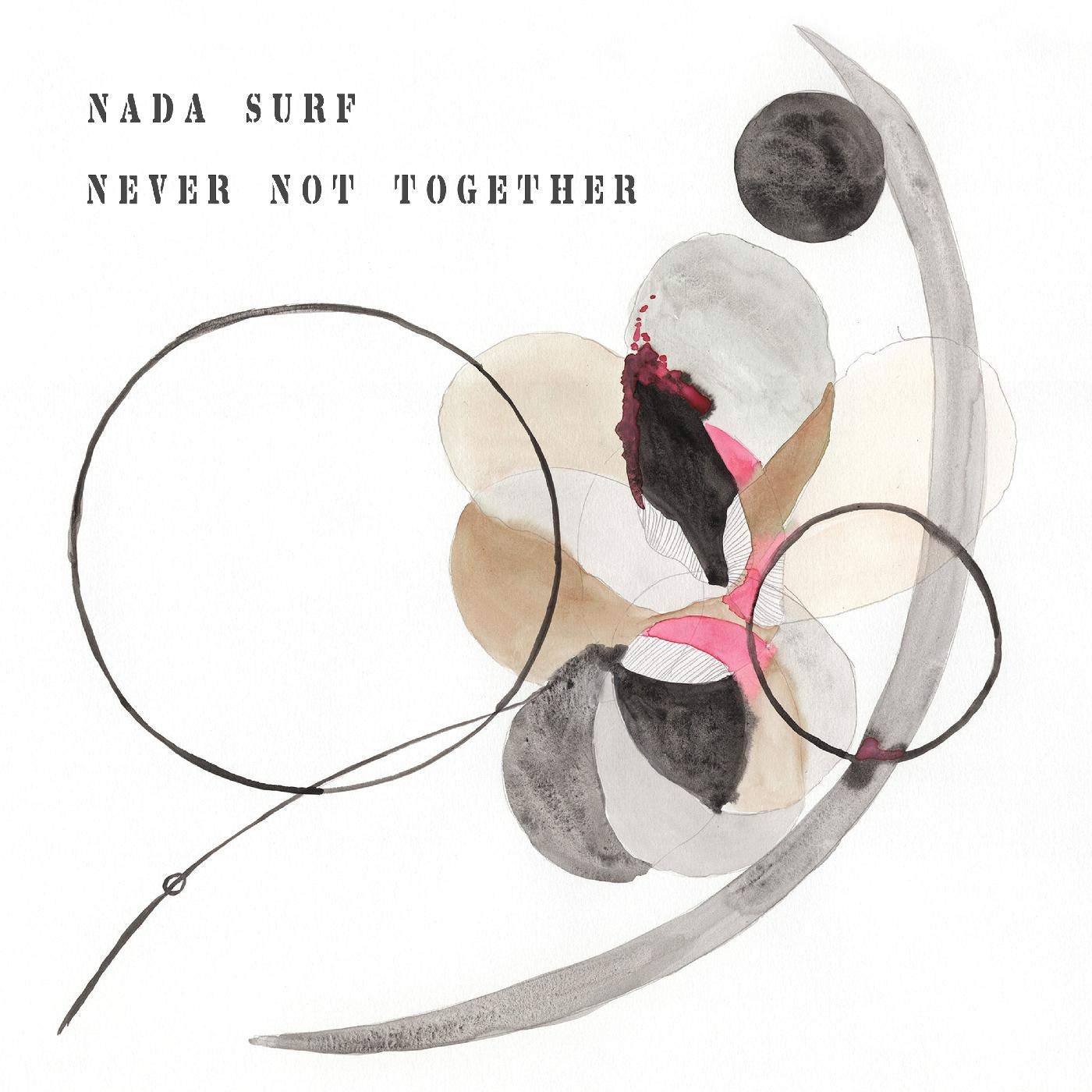  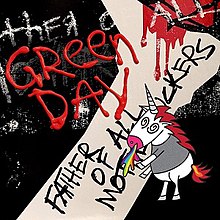
I listened to so, so much good music this year and I have been SO EXCITED to talk about it that some of these blurbs have been in draft for literal MONTHS. Also, I urge you to remember that I have spectacular, diverse taste in music and you should listen to me!!

 King Woman, Created in the Image of Suffering – This is 38 minutes of heavy, haunting, artful doom metal and it rules. Kristina Esfandiari is so unbelievably talented and you can hear pain and growth and struggle and escape and reconciliation and it’s beautiful and heavy and cool as hell. This was the first thing I listened to and loved in 2019 that made me feel like I was experiencing something I never had before, like it was the ground floor of something brand new to me that will only get better from here. “Utopia,” “Deny,” and “Shame” are my favorites, but I cannot stress enough how good it is as a complete album and how it’s incredibly satisfying to listen to that way. My only complaint is that I didn’t hear it sooner. King Woman, Created in the Image of Suffering – This is 38 minutes of heavy, haunting, artful doom metal and it rules. Kristina Esfandiari is so unbelievably talented and you can hear pain and growth and struggle and escape and reconciliation and it’s beautiful and heavy and cool as hell. This was the first thing I listened to and loved in 2019 that made me feel like I was experiencing something I never had before, like it was the ground floor of something brand new to me that will only get better from here. “Utopia,” “Deny,” and “Shame” are my favorites, but I cannot stress enough how good it is as a complete album and how it’s incredibly satisfying to listen to that way. My only complaint is that I didn’t hear it sooner.
 Billie Eilish, WHEN WE ALL FALL ASLEEP, WHERE DO WE GO? – This was probably my most surprising album of 2019 because I am old and crotchety and sometimes do that thing where I refuse to try something because there’s Too Much Hype and I Am An Asshole, so I am grateful to whatever Spotify user put “Bad Guy” on a playlist dedicated to tempo changes because otherwise I might never have heard the album at all. It’s another one that works as a whole, but I usually end up just queuing my favorites because I am fussy that way — “bad guy,” “you should see me in a crown,” “all the good girls go to hell,” “when the party’s over,” “my strange addiction,” “bury a friend,” and “listen before i go” — and also because they still form a kind of neat, cohesive sound without the songs between. I’m both wildly jealous that a teenager is so talented and also wildly excited to see what she does as she makes more music. Billie Eilish, WHEN WE ALL FALL ASLEEP, WHERE DO WE GO? – This was probably my most surprising album of 2019 because I am old and crotchety and sometimes do that thing where I refuse to try something because there’s Too Much Hype and I Am An Asshole, so I am grateful to whatever Spotify user put “Bad Guy” on a playlist dedicated to tempo changes because otherwise I might never have heard the album at all. It’s another one that works as a whole, but I usually end up just queuing my favorites because I am fussy that way — “bad guy,” “you should see me in a crown,” “all the good girls go to hell,” “when the party’s over,” “my strange addiction,” “bury a friend,” and “listen before i go” — and also because they still form a kind of neat, cohesive sound without the songs between. I’m both wildly jealous that a teenager is so talented and also wildly excited to see what she does as she makes more music.
 Christine & the Queens, Chris – Crystal does this thing at the beginning of the year where she looks at a whole bunch of year-end lists of music and then listens to a little bit of each album and sends me the ones she thinks I’ll like. (This is the most tender, romantic thing anyone has ever done for me. And the JOY and GLOATING PRIDE she radiates when she gets a selection right? Good lord, how it feeds my egomania.) This was one of the first she sent me at the start of 2019 and I was immediately so into it. It’s so dance-y and throwback-y without feeling like a derivative retread of the music it’s echoing. It’s great in English and French. (It might actually be even better in French. Don’t tell anyone I said that.) And it feels sparkling, enliveningly queer, which just completely fucking rules. The obvious standout here is “Girlfriend” which feels like… Gay New Wave Debbie Gibson? And “Feel So Good” — OH MAN, SO GOOD — but I also love “Doesn’t Matter” and “The Walker” and “Make Some Sense”. This got me through the rough early months of 2019 and it really continued to shine even after the snow melted. Christine & the Queens, Chris – Crystal does this thing at the beginning of the year where she looks at a whole bunch of year-end lists of music and then listens to a little bit of each album and sends me the ones she thinks I’ll like. (This is the most tender, romantic thing anyone has ever done for me. And the JOY and GLOATING PRIDE she radiates when she gets a selection right? Good lord, how it feeds my egomania.) This was one of the first she sent me at the start of 2019 and I was immediately so into it. It’s so dance-y and throwback-y without feeling like a derivative retread of the music it’s echoing. It’s great in English and French. (It might actually be even better in French. Don’t tell anyone I said that.) And it feels sparkling, enliveningly queer, which just completely fucking rules. The obvious standout here is “Girlfriend” which feels like… Gay New Wave Debbie Gibson? And “Feel So Good” — OH MAN, SO GOOD — but I also love “Doesn’t Matter” and “The Walker” and “Make Some Sense”. This got me through the rough early months of 2019 and it really continued to shine even after the snow melted.
 The Damned Things, High Crimes – This album is so god damn good and, like their last, has a kind of old school hard rock-metal feel with that kind of… slinky thing that fell out of favor and I missed immensely. (Seriously, listen to “Storm Charmer” or “Keep Crawling” – they make me feel like an extremely horny teenager again. It’s great.) “Something Good” is super catchy and fun and repeat-worthy. “Young Hearts” has a great middle-of-the-song breakdown AND great sort of falsetto call-and-response echo in the chorus. The guitar work is spectacular top to bottom and nobody else is slacking either. “Let Me Be (Your Girl)” is fucking great – “I don’t need to mean the world / I just wanna be your girl / I don’t need to have your heart / I just wanna leave a scar” – and also has a boss guitar solo. This is an album I listen to from beginning to end most of the time and I am never disappointed by a single song, but they also work as singles, popped out individually, and make a great addition to a playlist, which you know is one of my most beloved pasttimes and thus a very serious compliment. The Damned Things, High Crimes – This album is so god damn good and, like their last, has a kind of old school hard rock-metal feel with that kind of… slinky thing that fell out of favor and I missed immensely. (Seriously, listen to “Storm Charmer” or “Keep Crawling” – they make me feel like an extremely horny teenager again. It’s great.) “Something Good” is super catchy and fun and repeat-worthy. “Young Hearts” has a great middle-of-the-song breakdown AND great sort of falsetto call-and-response echo in the chorus. The guitar work is spectacular top to bottom and nobody else is slacking either. “Let Me Be (Your Girl)” is fucking great – “I don’t need to mean the world / I just wanna be your girl / I don’t need to have your heart / I just wanna leave a scar” – and also has a boss guitar solo. This is an album I listen to from beginning to end most of the time and I am never disappointed by a single song, but they also work as singles, popped out individually, and make a great addition to a playlist, which you know is one of my most beloved pasttimes and thus a very serious compliment.
 Frank Iero & the Future Violents, Barriers – This was hands down my most listened to album of 2019 and Frank was my most listened to artist of the year in general (He changes his band name every time he makes an album! Because he’s an artist!) and I just really loved it in a way that is hard to articulate because explaining why you just really, really love something is hard. Frank Iero & the Future Violents, Barriers – This was hands down my most listened to album of 2019 and Frank was my most listened to artist of the year in general (He changes his band name every time he makes an album! Because he’s an artist!) and I just really loved it in a way that is hard to articulate because explaining why you just really, really love something is hard.
That said, the run of “Moto Pop” into “Medicine Square Garden” into “No Love” is one of the most fucking,,, masterful pieces of music I’ve experienced in a long time. It honestly causes me PHYSICAL PAIN that it is so good and that I will never create anything remotely comparable!! It is best listened to EXTREMELY LOUD while you are INTENSELY FOCUSED and the fact that it’s all on side 3 together so I can sit too close to my turntable and go far away inside of it all at once… Magic. (“Police Police” is a solid finisher there too, so don’t let me undersell it.) And GOD, the jangly guitar at the beginning of “No Love” has made me roll around on the floor more than once out of sheer joy.
I cannot stress enough that the album as a whole is so fucking solid that I almost always listen to it in its entirety. I’ll be like, “Oh, I want to hear “Fever Dream” (the phrase “ventricle taste test”… it haunts me) and I’ll go to the album on Spotify and I’ll listen to that track and then I’ll be like, “Well… while… I’m… here…” and then start it from the beginning. And then I usually go back and listen to “Fever Dream” again and then the “Moto Pop”-“Medicine Square Garden”-“No Love” trimuvirate and then, honestly, I frequently go back and start the album again. (This sounds like a lot, but I listen to music all day at work and most of my evenings. I have time to obsess. It’s great.) “24K Lush” is a great gut punch of a finisher too.
When we saw them in July in Denver, I did not expect to cry at all. I didn’t even bother to take a guess at a song that might make me cry, that’s how unlikely it seemed! But then I just started HEAVILY WEEPING as soon as “24k Lush” started and then continued all the way through “Great Party,” so hideously that guitarist and extremely nice dude Evan Nestor handed me a bottle of water. I am… an all-time champion of behaving ExTREmelY NORmallY in public and also sometimes slow to absorb just how deeply something has gotten embedded in me. This album got its claws in and hasn’t let go yet.
Honorable Mentions
 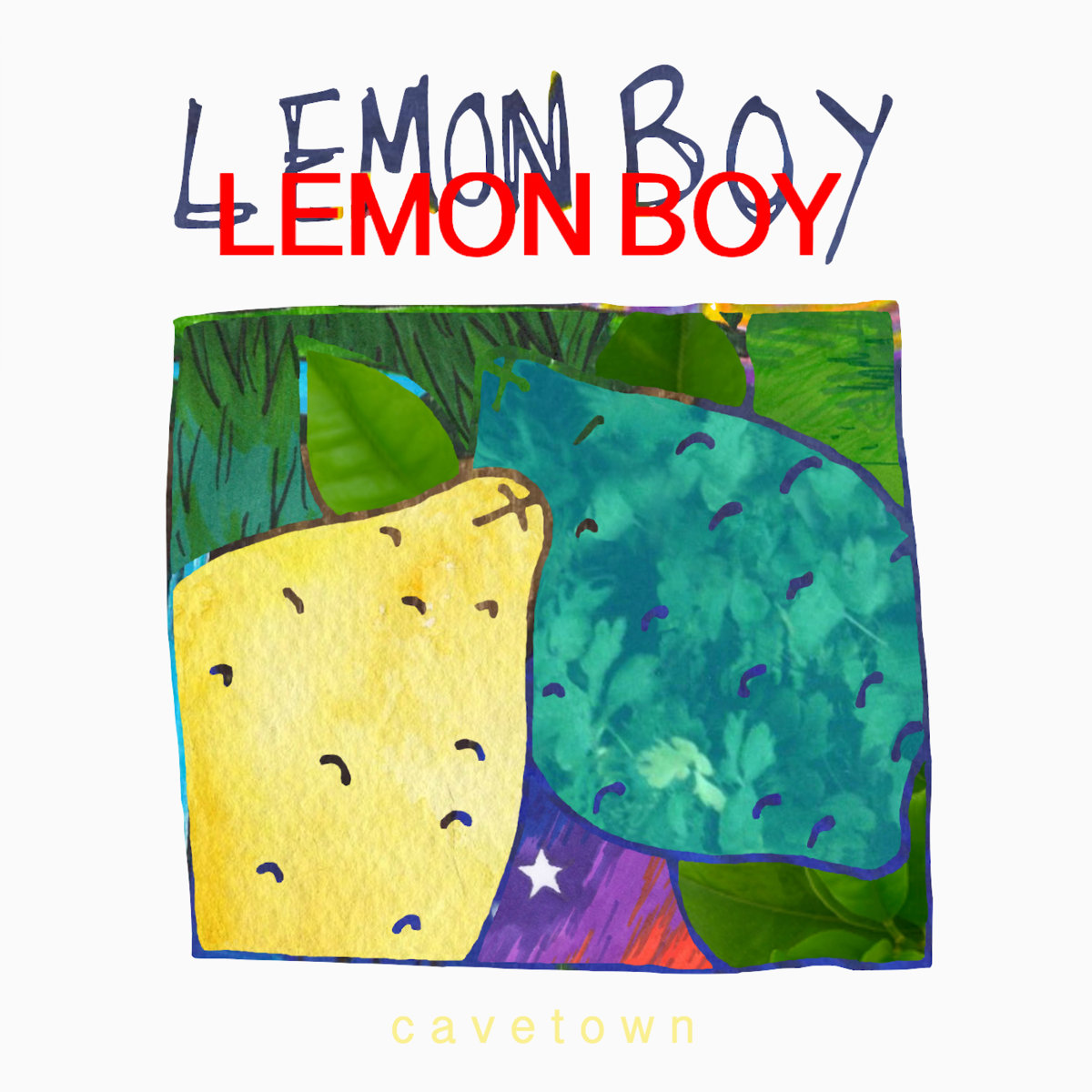 
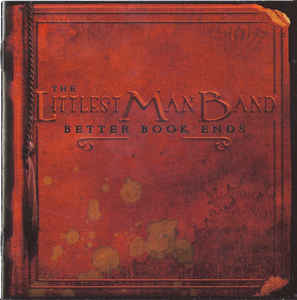  
Previously
2K12 | 2K13 | 2K14 | 2K15 | 2K16 | 2K17 | 2018
Here’s some more stuff I refrained from posting on the internet until now!

i, for one, believe that it’s deeply important to have an unhealthy relationship with everything you love – why just like something when you can be COMPLETELY UNHINGED about it
just saw a teenage girl in the year of our lord 2019 walking out of the gas station in a crew neck sweatshirt that said VIRGINITY ROCKS – was it ironic? was it legit? i will never know and i hate it!!
i have an mfa in writing and i will go to my grave having never used lay/lie correctly
u ever disassociate from yr own face, but in a good way? like, shit is that me cuz she cute!!
there’s a hole in the gore of my bra and the wire works itself out of it as i go about my day and today i touched it through my shirt and mumbled, “tiddy dick”
“speak of the devil” is my favorite thing to absolutely SHOUT whenever someone enters a conversation, regardless of whether we were actually speaking about them, the devil
so much of writing is just trying to figure out how not to use the same word twice in one sentence
today i have gotten ads on instagram for shibari rope and leather fox bdsm face masks and furry manga… i don’t know what the algorithm sees in me, but if that’s there,,,, it is buried too deep for me and i don’t want to meet it
u can be hot or u can be talented, but it should be illegal to be both
how do u know which horses need coats
I do still use Twitter, @ashrocketship, so you know… Don’t miss out on those either. Because I’m a real gift to the world and you should be getting as much of me as humanly possible.
November has been so, so good. Not just compared to the painful shitshow of October, but just like, genuinely! Even though it was also super stressful! What a wonderful and hideous mixed bag life can be!

 I didn’t know how I would feel about Lords of Chaos going in — I probably know about… 300 times more about Norwegian Black Metal than the average moviegoer — and I wasn’t totally sure what I thought after, but I sure have thought about it a lot. This was both a story I already knew and a subject I am vaguely interested in and I was worried I might be too concerned with The Truth to just watch it as a movie, but that ended up not being an issue because everyone is so good in it that I just sort of disappeared into it. I ended up having a lot of feelings I didn’t expect and though I think I wish it had focused more on the relationship between Euronymous and his band before Dead’s death, I obviously get why we got the timeline we did. I was surprised at how beautifully this was shot and also how absurdly funny it was in places and also how much the ending got to me emotionally even knowing what was coming. It’s not going to be for everyone and I think selling it as a “horror-thriller” is not only incorrect, but gross. This is a music biopic tragedy set in a subculture that looks absolutely nonsensical, even to people familiar with it, and it does that well. I didn’t know how I would feel about Lords of Chaos going in — I probably know about… 300 times more about Norwegian Black Metal than the average moviegoer — and I wasn’t totally sure what I thought after, but I sure have thought about it a lot. This was both a story I already knew and a subject I am vaguely interested in and I was worried I might be too concerned with The Truth to just watch it as a movie, but that ended up not being an issue because everyone is so good in it that I just sort of disappeared into it. I ended up having a lot of feelings I didn’t expect and though I think I wish it had focused more on the relationship between Euronymous and his band before Dead’s death, I obviously get why we got the timeline we did. I was surprised at how beautifully this was shot and also how absurdly funny it was in places and also how much the ending got to me emotionally even knowing what was coming. It’s not going to be for everyone and I think selling it as a “horror-thriller” is not only incorrect, but gross. This is a music biopic tragedy set in a subculture that looks absolutely nonsensical, even to people familiar with it, and it does that well.
 Cavetown, Lemon Boy – I have accepted that I exist only at the whims of the algorithm so I should know by now that when it serves me a song that I really like, I shouldn’t wait six months to listen to the album that the song is on, but that’s exactly what happened with Cavetown. “Lemon Boy” showed up at some point early this year and I loved it and have listened to it and put it on my giant master list of songs I like but I didn’t listen to the album until earlier this month after “Pigeon” popped up for me and I loved it too. The album is solid and pretty and kind of achy in places I wasn’t expecting which I always loooooove. In addition to the aforementioned tunes, I am also obsessed with “Green” and “It’s U” and “Taking Care of Things” and “10 Feet Tall” and “888,” but the whole album is genuinely great. Cavetown, Lemon Boy – I have accepted that I exist only at the whims of the algorithm so I should know by now that when it serves me a song that I really like, I shouldn’t wait six months to listen to the album that the song is on, but that’s exactly what happened with Cavetown. “Lemon Boy” showed up at some point early this year and I loved it and have listened to it and put it on my giant master list of songs I like but I didn’t listen to the album until earlier this month after “Pigeon” popped up for me and I loved it too. The album is solid and pretty and kind of achy in places I wasn’t expecting which I always loooooove. In addition to the aforementioned tunes, I am also obsessed with “Green” and “It’s U” and “Taking Care of Things” and “10 Feet Tall” and “888,” but the whole album is genuinely great.
 Like so many other people on the internet, I have been playing Cat Condo because it is a soothing and simple distraction in a chaotic world. There’s not much to say about it other than the cats are extremely cute and I really like being able to come and go without any commitment to sit and tap unless I want to because the game keeps generating cats in my absence. What a time to be alive. Like so many other people on the internet, I have been playing Cat Condo because it is a soothing and simple distraction in a chaotic world. There’s not much to say about it other than the cats are extremely cute and I really like being able to come and go without any commitment to sit and tap unless I want to because the game keeps generating cats in my absence. What a time to be alive.
And three to look forward to…
 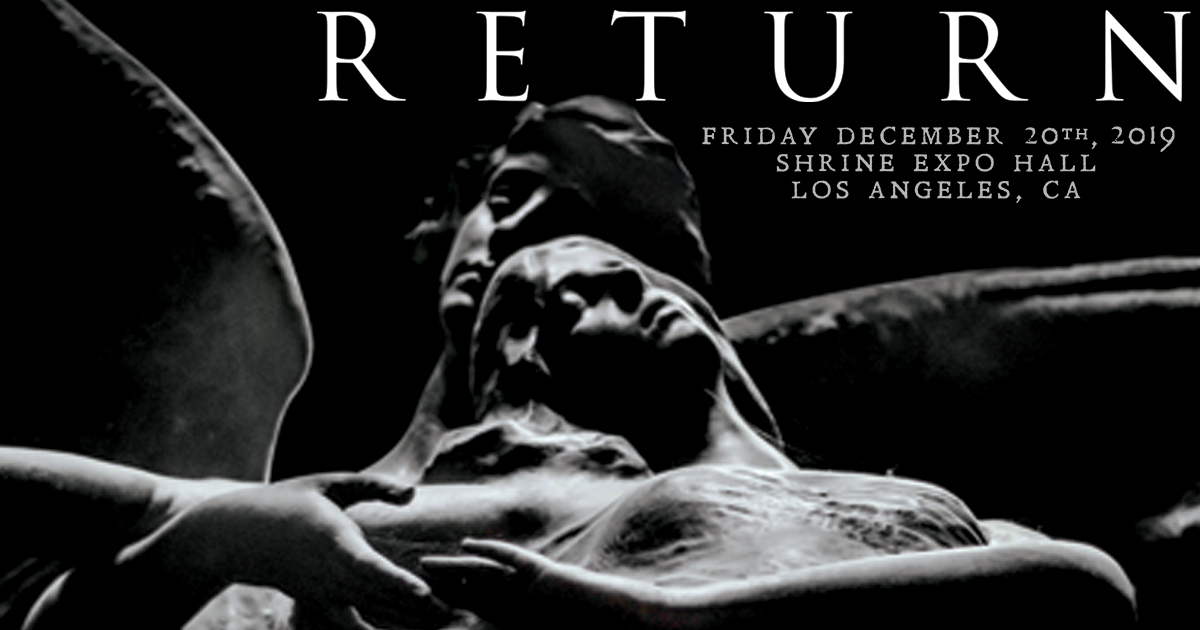 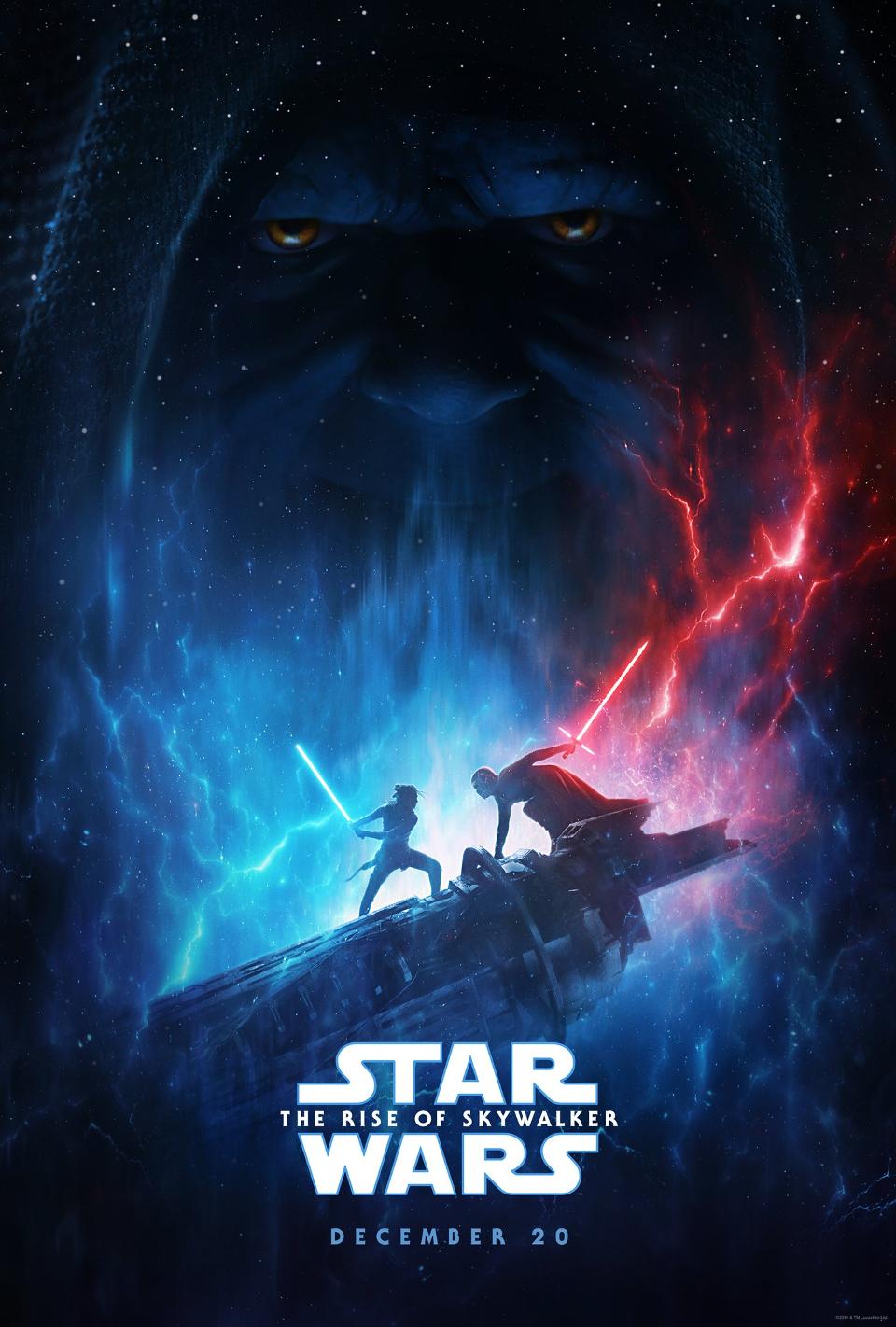
I take great pride in being unembarrassable. Incapable of shame. I think of myself as existing Above and Beyond the mortal realm of humiliation. Some of that’s an act, obviously, because I am still human despite my best efforts. But by committing to the act for so long, it’s become truer and truer as time goes on. I don’t get embarrassed at things that I know other people would and I’m often joyfully and enthusiastically willing to do dumb shit out loud and in public that would likely horrify other people. I just want to be myself. If other people don’t like it, well. That’s not really a me problem, is it?
So, recently, I made a tank top. I had envisioned this shirt — I wanted a floral print tank top, fairly femme, and I wanted big white iron-on letters spelling out GET BENT across the chest. I say and write, “Get bent” a lot. I like that it’s both pretty aggressive and weirdly inoffensive. I like that the delivery can really sell your meaning. I like that it’s kind of old school.
I wanted this shirt in time to go to a concert in Denver and Crystal helped me get it made in a hotel room in Wyoming since we don’t actually own an iron with which to iron-on letters. I got frustrated and wanted to quit, but she made me persist! Because she is a very good wife and carries me through when I try to wimp out on stuff.
So I made this shirt! And it turned out fucking great! And I wore it to the show in Denver for Frank Iero and the Future Violents! And I took a picture with the whole band in it! And I have worn it a couple times since, including to see Ghost in Minneapolis and Ludo in St. Louis and I’ve gotten a bunch of compliments on it! Especially from drunken middle-aged women! Including a couple who have gently grabbbed me in the friendly way that only women can and went, “GET BENT! HA! That is GREAT!” And I get the bonus of getting to watch men look at my chest, read it, then look up at my face as they interpret it as a message for them and that is… Transcendent.
So I have warm feelings for this shirt and I’m happy about its existence. But then, while perusing Tumblr as I am now occasionally wont to do because the whole internet is a wasteland and who needs principles anyway, I came across a picture of the Frank Iero from Frank Iero and the Future Violents playing with his Future Violents about a week before I saw them in Denver. In the photo, he is holding his guitar flipped up against him so the back is showing. (He often puts words on the back of his guitars — numbers, his kids’ initials, whatever — so not unusual to see writing there.) But on this guitar… It says… Get… Bent…
 And. You know. Coincidences, right?! Frank Iero and I have… similar tastes? We are… close in age? It is… Not weird! That we would both! Be partial! To the phrase! Get bent! And. You know. Coincidences, right?! Frank Iero and I have… similar tastes? We are… close in age? It is… Not weird! That we would both! Be partial! To the phrase! Get bent!
But also, Frank Iero was/is (DON’T GET ME STARTED! The last week has been WILD.) a member of My Chemical Romance and has fans who are… Very Devoted! And they sometimes dress up like him and/or his My Chemical Romance bandmates! And then go to his shows! With his new band! And would probably very much make a shirt that said something he had put on one of his guitars!
And… while I love and respect these fans Very Much because they are, let’s face it, the ones who make the gears turn, the machines work, the reunions happen, I am… Just… Not one of them. Which is fine! I am obsessive and devoted in my own way!
But the idea… that Frank Iero might have looked at this shirt I was wearing while I was PAYING TO MEET HIM (An already, admittedly, kind of mortifying thing to do!) and which I had very clearly made myself… And thought I did it… Because he has that same phrase… on one of his guitars… … …
The Retroactive Embarrassment…. My soul left my body… I transmuted briefly into a toad as if cursed by a wizard I had wronged… I curled so deeply into myself that I returned to my fetal form… When what was left of my soul finally returned to my wombless wormy body, I burst outward into Humiliation Fireworks and then slowly returned to the earth as embers and ash… My body reassembling piece by piece… Even now, thinking about it, the molten lava of residual shame is the only glue holding me together.

I’m still gonna keep wearing it though.
|
|

 Harry Styles’ Fine Line is so lovely and so artful and delicate and poppy and fun and emotive and I was so looking forward to it and so glad to not only not be disappointed, but to be deeply impressed and MOVED. I’m particularly fond of “Adore You” and “Cherry” and “To Be So Lonely” and “She,” and “Canyon Moon,” and okay, really, not going to list the entire album, but I am really into the whole thing. This is just a lovely cohesive experience that’s very repeatable.
Harry Styles’ Fine Line is so lovely and so artful and delicate and poppy and fun and emotive and I was so looking forward to it and so glad to not only not be disappointed, but to be deeply impressed and MOVED. I’m particularly fond of “Adore You” and “Cherry” and “To Be So Lonely” and “She,” and “Canyon Moon,” and okay, really, not going to list the entire album, but I am really into the whole thing. This is just a lovely cohesive experience that’s very repeatable. Though I don’t consider myself a sports person, as surely I have mentioned before like the obnoxious pain in the ass I am, I’m not not-interested in sports and have often gone through phases of getting really into watching hockey and/or baseball depending on my ~mood and the season. This winter, Crystal and I have gotten pretty into hockey compilations on YouTube (I love injuries and fights. I know what this says about me. Hush.) and because of that, the algorithm served us a Bardown Quiz and we kind of fell in love. Everyone who shows up for the quizzes is a delight and we like the dumb inter-office competition and the yelling. The other Bardown videos are great too, but nothing tops the quizzes.
Though I don’t consider myself a sports person, as surely I have mentioned before like the obnoxious pain in the ass I am, I’m not not-interested in sports and have often gone through phases of getting really into watching hockey and/or baseball depending on my ~mood and the season. This winter, Crystal and I have gotten pretty into hockey compilations on YouTube (I love injuries and fights. I know what this says about me. Hush.) and because of that, the algorithm served us a Bardown Quiz and we kind of fell in love. Everyone who shows up for the quizzes is a delight and we like the dumb inter-office competition and the yelling. The other Bardown videos are great too, but nothing tops the quizzes. Orville Peck’s Pony is absolutely going to be on my top five of 2020 because I listened to it at least once every day in January. AT! LEAST! ONCE! A! DAY! FOR! A! WHOLE! MONTH! And I am not even a little tired of it yet. ORVILLE PECK SOUNDS LIKE QUEER “I LOVE YOU BECAUSE”/”I WILL BE HOME AGAIN” ELVIS MADE AN ALBUM IN TWIN PEAKS. If that doesn’t sell you… Well. This probably isn’t the album for you, I guess!
Orville Peck’s Pony is absolutely going to be on my top five of 2020 because I listened to it at least once every day in January. AT! LEAST! ONCE! A! DAY! FOR! A! WHOLE! MONTH! And I am not even a little tired of it yet. ORVILLE PECK SOUNDS LIKE QUEER “I LOVE YOU BECAUSE”/”I WILL BE HOME AGAIN” ELVIS MADE AN ALBUM IN TWIN PEAKS. If that doesn’t sell you… Well. This probably isn’t the album for you, I guess!




 King Woman, Created in the Image of Suffering – This is 38 minutes of heavy, haunting, artful doom metal and it rules. Kristina Esfandiari is so unbelievably talented and you can hear pain and growth and struggle and escape and reconciliation and it’s beautiful and heavy and cool as hell. This was the first thing I listened to and loved in 2019 that made me feel like I was experiencing something I never had before, like it was the ground floor of something brand new to me that will only get better from here. “Utopia,” “Deny,” and “Shame” are my favorites, but I cannot stress enough how good it is as a complete album and how it’s incredibly satisfying to listen to that way. My only complaint is that I didn’t hear it sooner.
King Woman, Created in the Image of Suffering – This is 38 minutes of heavy, haunting, artful doom metal and it rules. Kristina Esfandiari is so unbelievably talented and you can hear pain and growth and struggle and escape and reconciliation and it’s beautiful and heavy and cool as hell. This was the first thing I listened to and loved in 2019 that made me feel like I was experiencing something I never had before, like it was the ground floor of something brand new to me that will only get better from here. “Utopia,” “Deny,” and “Shame” are my favorites, but I cannot stress enough how good it is as a complete album and how it’s incredibly satisfying to listen to that way. My only complaint is that I didn’t hear it sooner. Billie Eilish, WHEN WE ALL FALL ASLEEP, WHERE DO WE GO? – This was probably my most surprising
Billie Eilish, WHEN WE ALL FALL ASLEEP, WHERE DO WE GO? – This was probably my most surprising  Christine & the Queens, Chris – Crystal does this thing at the beginning of the year where she looks at a whole bunch of year-end lists of music and then listens to a little bit of each album and sends me the ones she thinks I’ll like. (This is the most tender, romantic thing anyone has ever done for me. And the JOY and GLOATING PRIDE she radiates when she gets a selection right? Good lord, how it feeds my egomania.) This was one of the first she sent me at the start of 2019 and I was immediately so into it. It’s so dance-y and throwback-y without feeling like a derivative retread of the music it’s echoing. It’s great in English and French. (It might actually be even better in French. Don’t tell anyone I said that.) And it feels sparkling, enliveningly queer, which just completely fucking rules. The obvious standout here is “Girlfriend” which feels like… Gay New Wave Debbie Gibson? And “Feel So Good” — OH MAN, SO GOOD — but I also love “Doesn’t Matter” and “The Walker” and “Make Some Sense”. This got me through the rough early months of 2019 and it really continued to shine even after the snow melted.
Christine & the Queens, Chris – Crystal does this thing at the beginning of the year where she looks at a whole bunch of year-end lists of music and then listens to a little bit of each album and sends me the ones she thinks I’ll like. (This is the most tender, romantic thing anyone has ever done for me. And the JOY and GLOATING PRIDE she radiates when she gets a selection right? Good lord, how it feeds my egomania.) This was one of the first she sent me at the start of 2019 and I was immediately so into it. It’s so dance-y and throwback-y without feeling like a derivative retread of the music it’s echoing. It’s great in English and French. (It might actually be even better in French. Don’t tell anyone I said that.) And it feels sparkling, enliveningly queer, which just completely fucking rules. The obvious standout here is “Girlfriend” which feels like… Gay New Wave Debbie Gibson? And “Feel So Good” — OH MAN, SO GOOD — but I also love “Doesn’t Matter” and “The Walker” and “Make Some Sense”. This got me through the rough early months of 2019 and it really continued to shine even after the snow melted. The Damned Things, High Crimes – This album is so god damn good and, like their last, has a kind of old school hard rock-metal feel with that kind of… slinky thing that fell out of favor and I missed immensely. (Seriously, listen to “Storm Charmer” or “Keep Crawling” – they make me feel like an extremely horny teenager again. It’s great.) “Something Good” is super catchy and fun and repeat-worthy. “Young Hearts” has a great middle-of-the-song breakdown AND great sort of falsetto call-and-response echo in the chorus. The guitar work is spectacular top to bottom and nobody else is slacking either. “Let Me Be (Your Girl)” is fucking great – “I don’t need to mean the world / I just wanna be your girl / I don’t need to have your heart / I just wanna leave a scar” – and also has a boss guitar solo. This is an album I listen to from beginning to end most of the time and I am never disappointed by a single song, but they also work as singles, popped out individually, and make a great addition to a playlist, which you know is one of my most beloved pasttimes and thus a very serious compliment.
The Damned Things, High Crimes – This album is so god damn good and, like their last, has a kind of old school hard rock-metal feel with that kind of… slinky thing that fell out of favor and I missed immensely. (Seriously, listen to “Storm Charmer” or “Keep Crawling” – they make me feel like an extremely horny teenager again. It’s great.) “Something Good” is super catchy and fun and repeat-worthy. “Young Hearts” has a great middle-of-the-song breakdown AND great sort of falsetto call-and-response echo in the chorus. The guitar work is spectacular top to bottom and nobody else is slacking either. “Let Me Be (Your Girl)” is fucking great – “I don’t need to mean the world / I just wanna be your girl / I don’t need to have your heart / I just wanna leave a scar” – and also has a boss guitar solo. This is an album I listen to from beginning to end most of the time and I am never disappointed by a single song, but they also work as singles, popped out individually, and make a great addition to a playlist, which you know is one of my most beloved pasttimes and thus a very serious compliment. Frank Iero & the Future Violents, Barriers – This was hands down my most listened to album of 2019 and Frank was my most listened to artist of the year in general (He changes his band name every time he makes an album! Because he’s an artist!) and I just really loved it in a way that is hard to articulate because explaining why you just really, really love something is hard.
Frank Iero & the Future Violents, Barriers – This was hands down my most listened to album of 2019 and Frank was my most listened to artist of the year in general (He changes his band name every time he makes an album! Because he’s an artist!) and I just really loved it in a way that is hard to articulate because explaining why you just really, really love something is hard.







 I didn’t know how I would feel about Lords of Chaos going in — I probably know about… 300 times more about Norwegian Black Metal than the average moviegoer — and I wasn’t totally sure what I thought after, but I sure have thought about it a lot. This was both a story I already knew and a subject I am vaguely interested in and I was worried I might be too concerned with The Truth to just watch it as a movie, but that ended up not being an issue because everyone is so good in it that I just sort of disappeared into it. I ended up having a lot of feelings I didn’t expect and though I think I wish it had focused more on the relationship between Euronymous and his band before Dead’s death, I obviously get why we got the timeline we did. I was surprised at how beautifully this was shot and also how absurdly funny it was in places and also how much the ending got to me emotionally even knowing what was coming. It’s not going to be for everyone and I think selling it as a “horror-thriller” is not only incorrect, but gross. This is a music biopic tragedy set in a subculture that looks absolutely nonsensical, even to people familiar with it, and it does that well.
I didn’t know how I would feel about Lords of Chaos going in — I probably know about… 300 times more about Norwegian Black Metal than the average moviegoer — and I wasn’t totally sure what I thought after, but I sure have thought about it a lot. This was both a story I already knew and a subject I am vaguely interested in and I was worried I might be too concerned with The Truth to just watch it as a movie, but that ended up not being an issue because everyone is so good in it that I just sort of disappeared into it. I ended up having a lot of feelings I didn’t expect and though I think I wish it had focused more on the relationship between Euronymous and his band before Dead’s death, I obviously get why we got the timeline we did. I was surprised at how beautifully this was shot and also how absurdly funny it was in places and also how much the ending got to me emotionally even knowing what was coming. It’s not going to be for everyone and I think selling it as a “horror-thriller” is not only incorrect, but gross. This is a music biopic tragedy set in a subculture that looks absolutely nonsensical, even to people familiar with it, and it does that well. Like so many other people on the internet, I have been playing Cat Condo because it is a soothing and simple distraction in a chaotic world. There’s not much to say about it other than the cats are extremely cute and I really like being able to come and go without any commitment to sit and tap unless I want to because the game keeps generating cats in my absence. What a time to be alive.
Like so many other people on the internet, I have been playing Cat Condo because it is a soothing and simple distraction in a chaotic world. There’s not much to say about it other than the cats are extremely cute and I really like being able to come and go without any commitment to sit and tap unless I want to because the game keeps generating cats in my absence. What a time to be alive.




